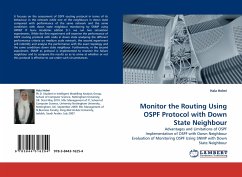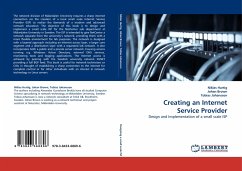Today there exist various independent mechanisms that use flow-based approaches for performing QoS provisioning, control and other operations such as flow routing, flow accounting, etc. To build a flow-based future Internet, there is a need to combine different strategies, not only to achieve the desired QoS performance but also to do so in a scalable and efficient manner, while keeping the network robust against unexpected changes in the system. Deploying a flow-based policy involves (i) developing the functional aspects that operate at the control plane of the router, taking decisions at the flow level, and (ii) the implementation of the same in the switching plane of the router. This dissertation addresses the three important design principles of scalability, efficiency and robustness to build a deployable flow-based future Internet that aims at improving the performance of small flows, in the context of an increasing mice-elephant phenomenon.
Bitte wählen Sie Ihr Anliegen aus.
Rechnungen
Retourenschein anfordern
Bestellstatus
Storno








